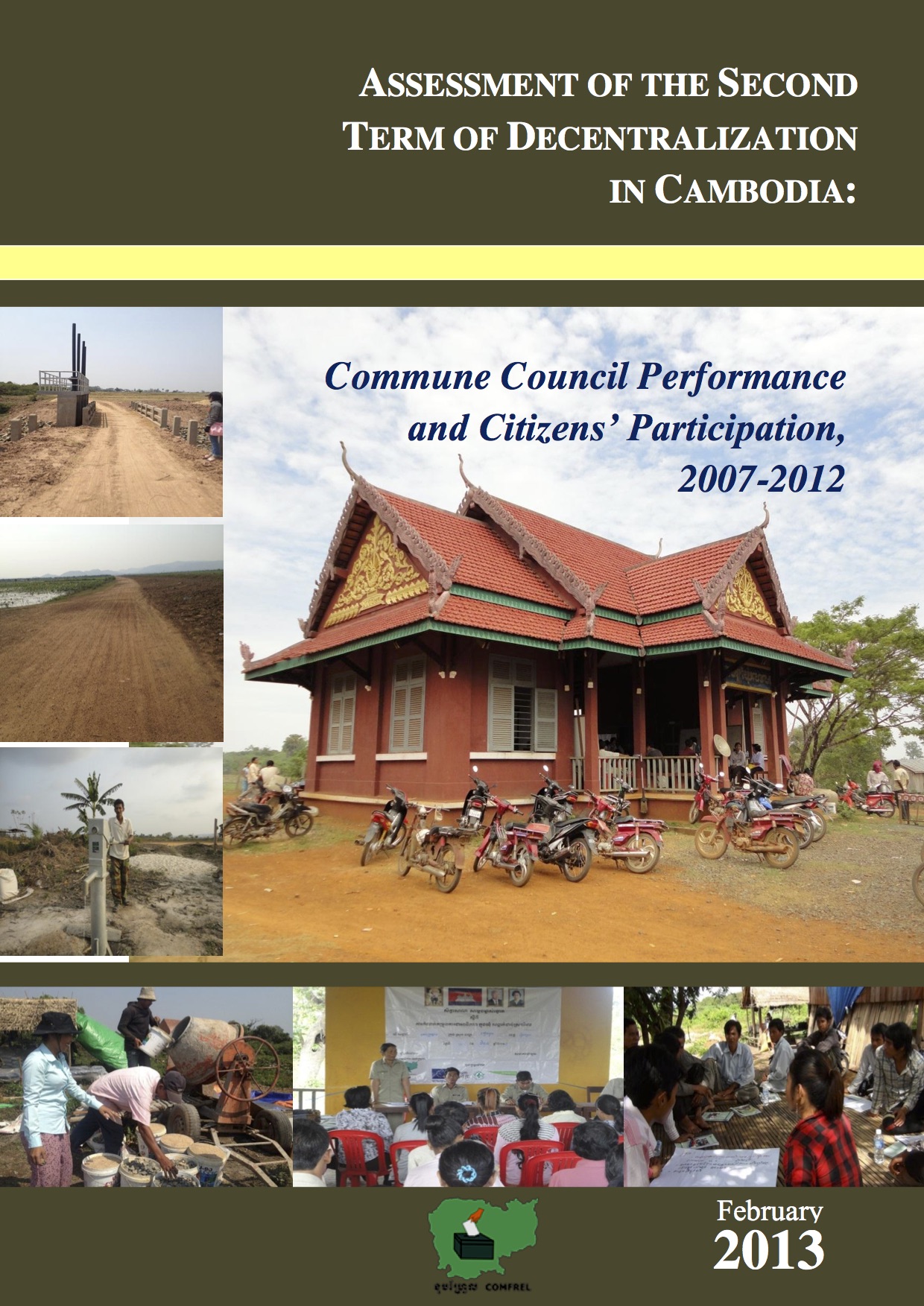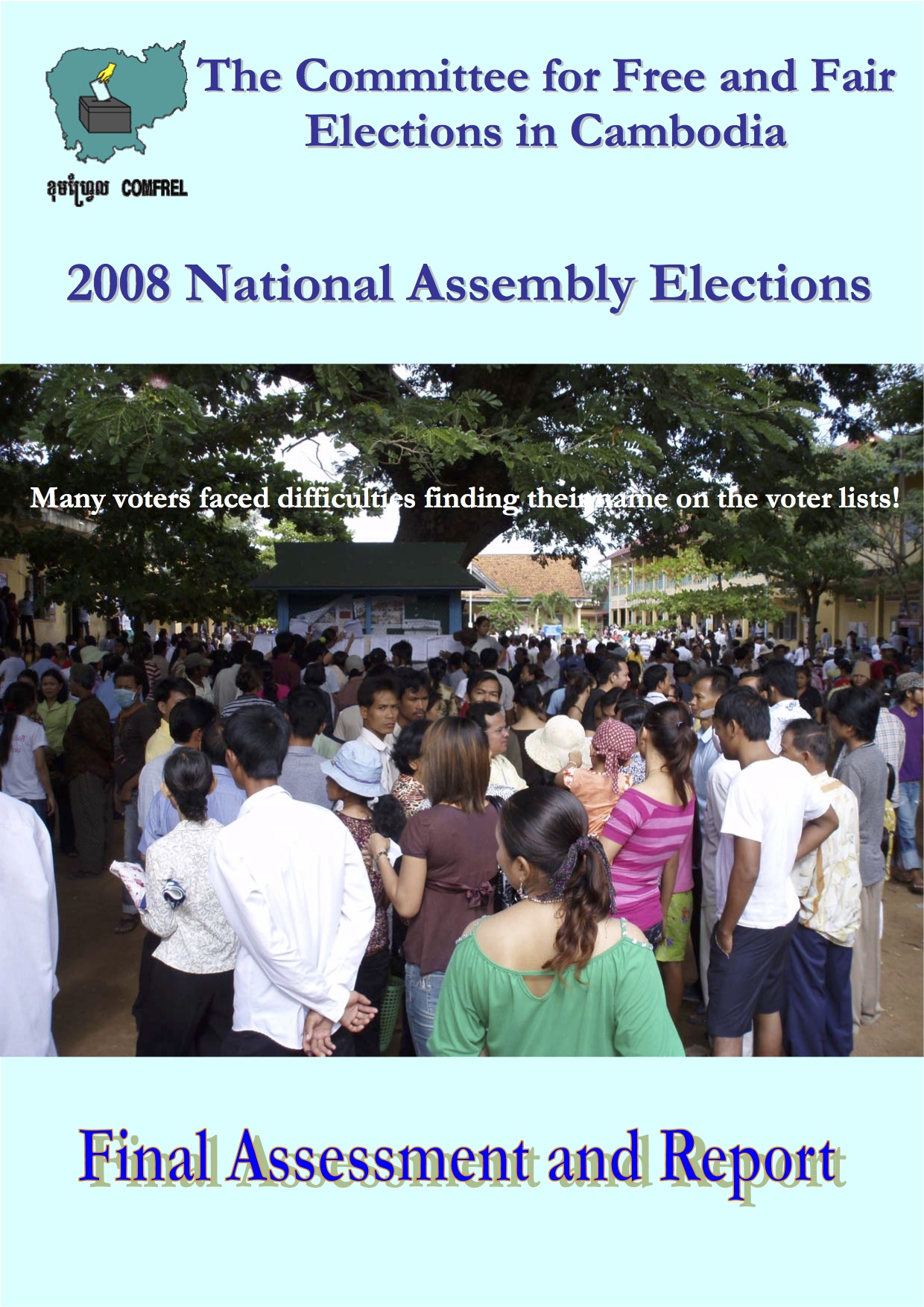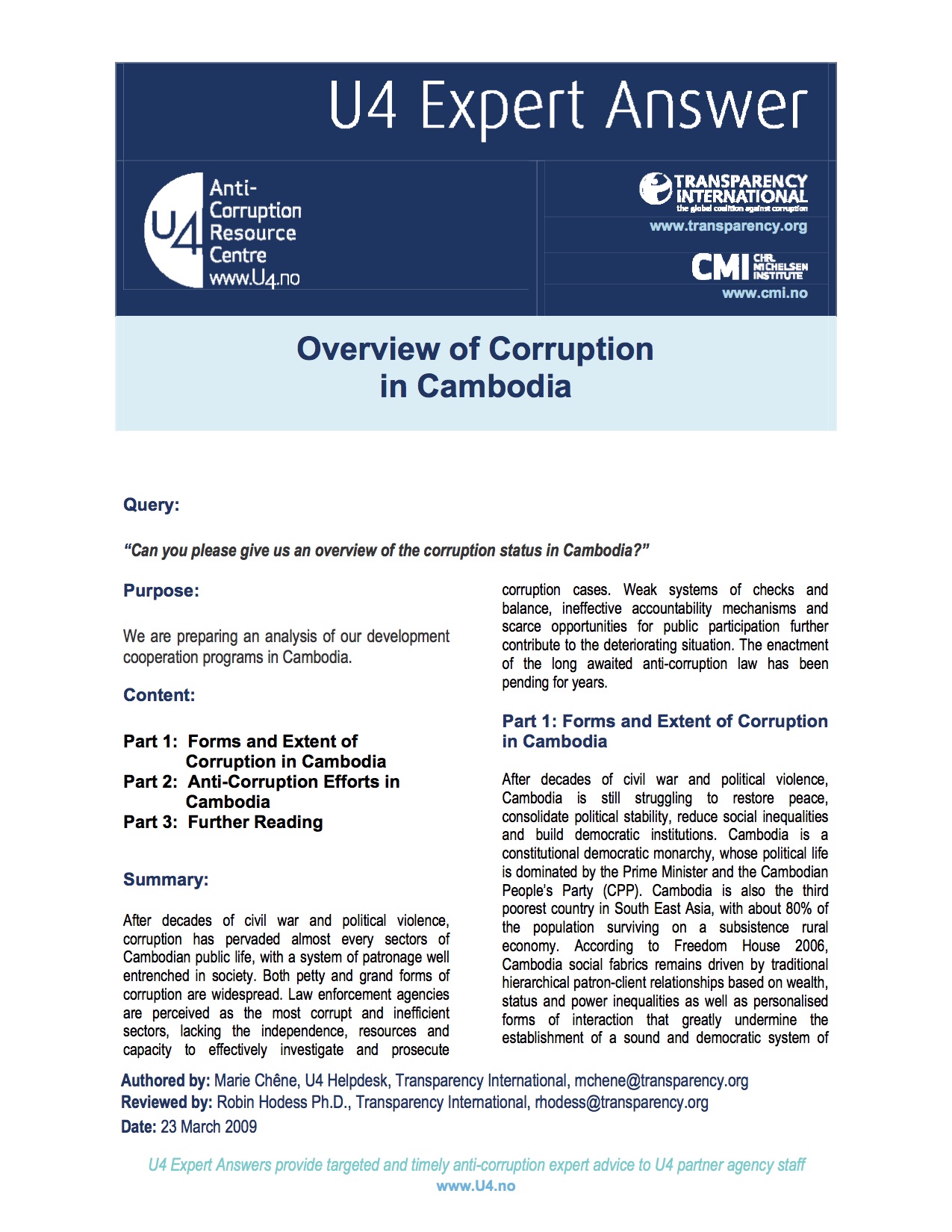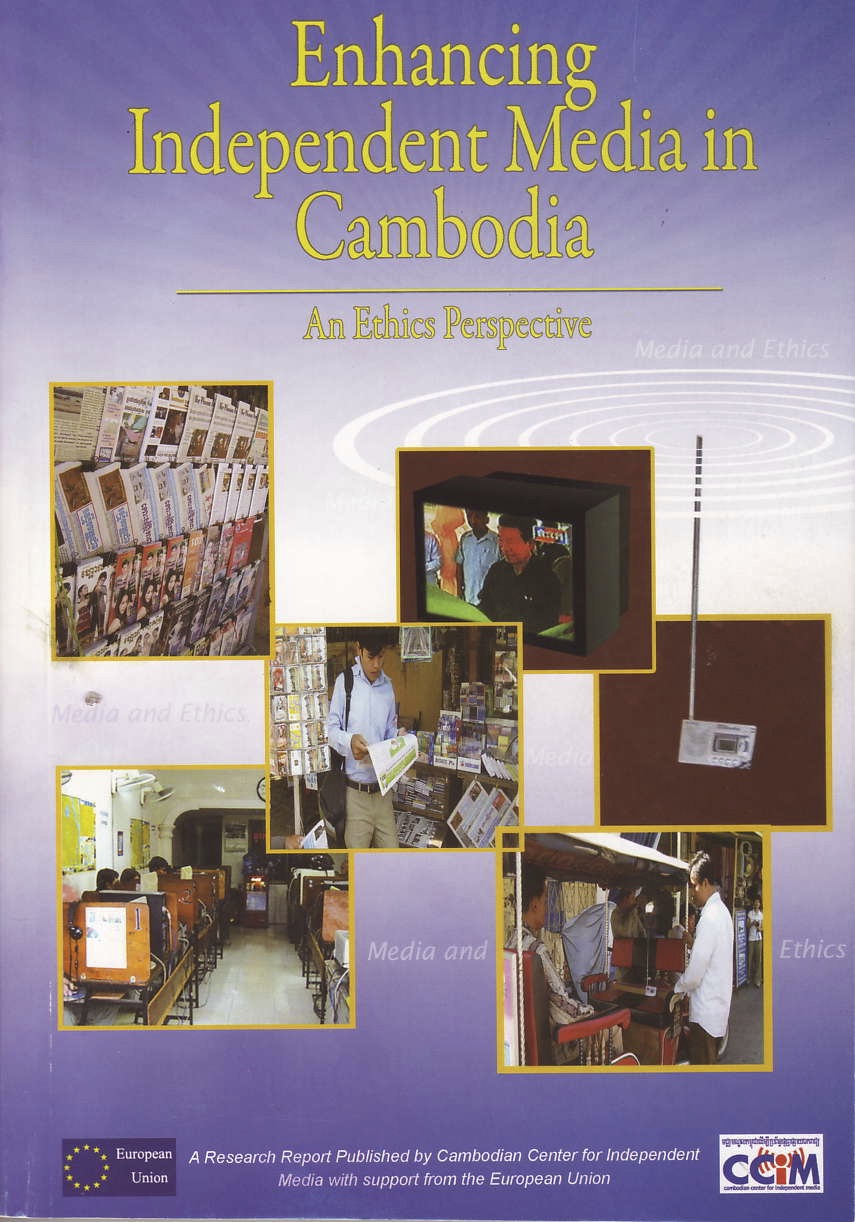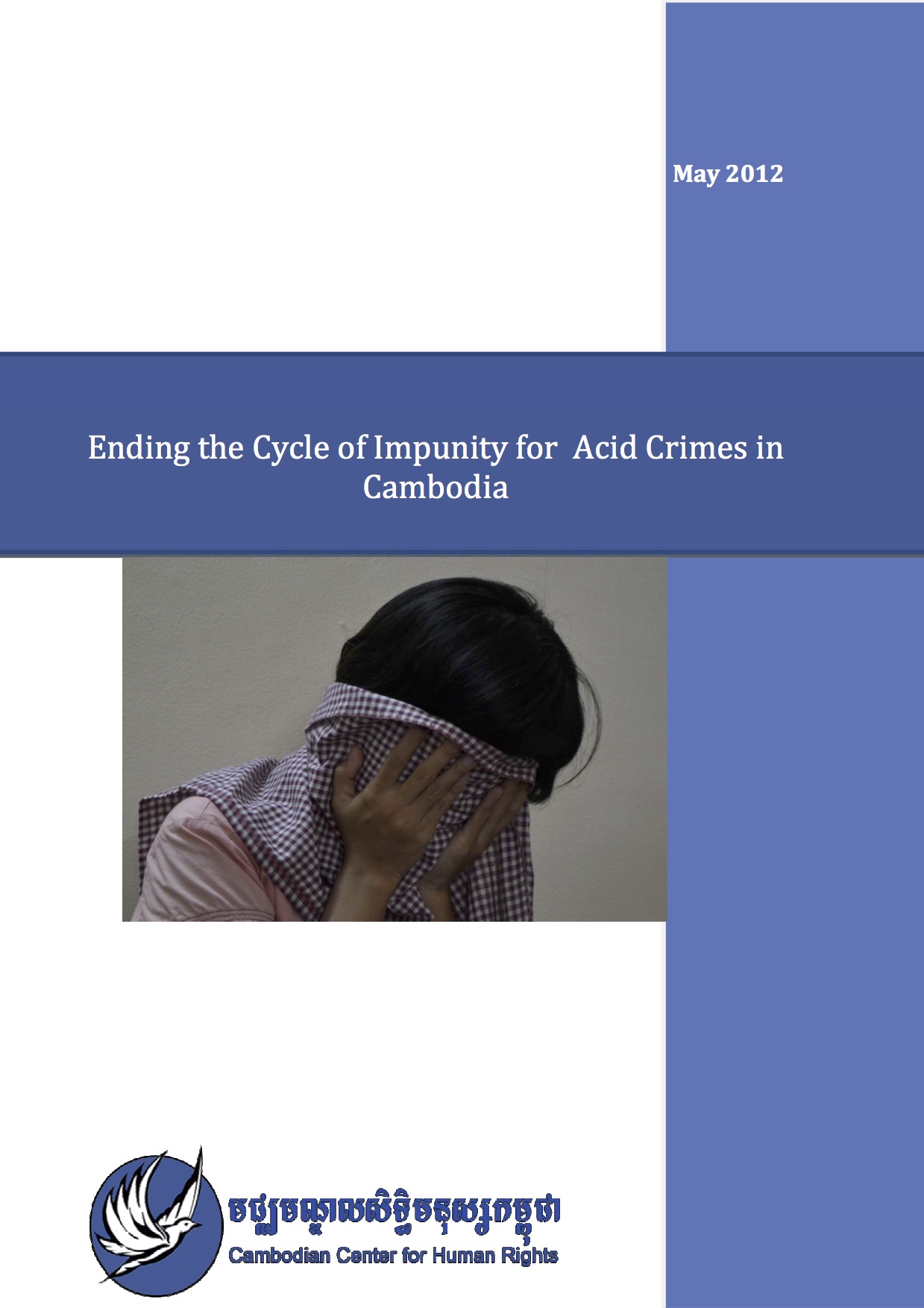Latest Entries
Assessment of the Second Term of Decentralization in Cambodia: Commune Council Performance and Citizens’ Participation, 2008-2012
Publication Year: 2013 / Sources: Committee for Free & Fair Elections in Cambodia (COMFREL)To contribute to the promote decentralization and local governance, COMFREL conducted an assessment of the first term of decentralization for the period (2002-2007). As another follow-up study, COMFREL also conducted the assessment of the second mandate of D&D. This study aims to review the progress of current implementation of decentralization reform and assess the performance of commune councilors and citizens‟ participation in the second term of decentralization (2007-2012).
Final Assessment and Report on the 2008 National Assembly Elections
Publication Year: 2008 / Sources: The Committee for Free and Fair The Committee for Free and Fair Elections in Cambodia Elections in Cambodia (COMFREL)This report on the 2008 National Assembly elections includes findings, analysis, overall assessment and recommendations, as a compilation of COMFREL’s reports and statements published prior to election campaign, polling and immediately post-election periods, as well as an analysis of the election results. As with previous reports, analysis and recommendations seek to advance the debate on the reform and promotion of free and fair elections in Cambodia.
Overview of Corruption in Cambodia
Publication Year: 2009 / Sources: U4 Expert AnswersWe are preparing an analysis of our development cooperation programs in Cambodia.
Enhancing Independent Media in Cambodia
Publication Year: 2009 / Sources: Cambodian Center for Independent MediaTo strengthen journalists’ practice of professional ethics in Cambodia, the Cambodian Center for Independent Media (CCIM) is initiating a project in 2009 titled “Enhancing Independent Media in Cambodia,” with generous funding from the European Union. This report comprises the first phase of that project. It aims to identify, analyze, and offer solutions to the ethical dilemmas facing Cambodian journalists.
Ending the Cycle of Impunity for Acid Crimes in Cambodia
Publication Year: 2012 / Sources: Cambodian Center for Human Rights (CCHR)In Cambodia a culture of impunity surrounds acid violence. In the majority of cases offenders escape trial and conviction for these heinous crimes. The advent of a new Acid Law has been seen as a means of curbing the problem of acid violence. However, the fact that the perpetrators of the three abhorrent acid crimes committed so far this year – of which we know of – continue to be at large emphasizes that for the new legislation to have an impact there needs to be a fundamental shift in the manner in which crimes are investigated and how acid cases are tried. Without this shift, the effect of the new law will be negligible and impunity will continue. The purpose of this Report is to assist the Royal Government of Cambodia (the “RGC”), its ministries, the police and the judiciary by examining the failings and obstacles that victims face at the reporting, investigating and trial stages of the criminal justice process that feeds the cycle of impunity that perpetuates the problem of acid violence.

